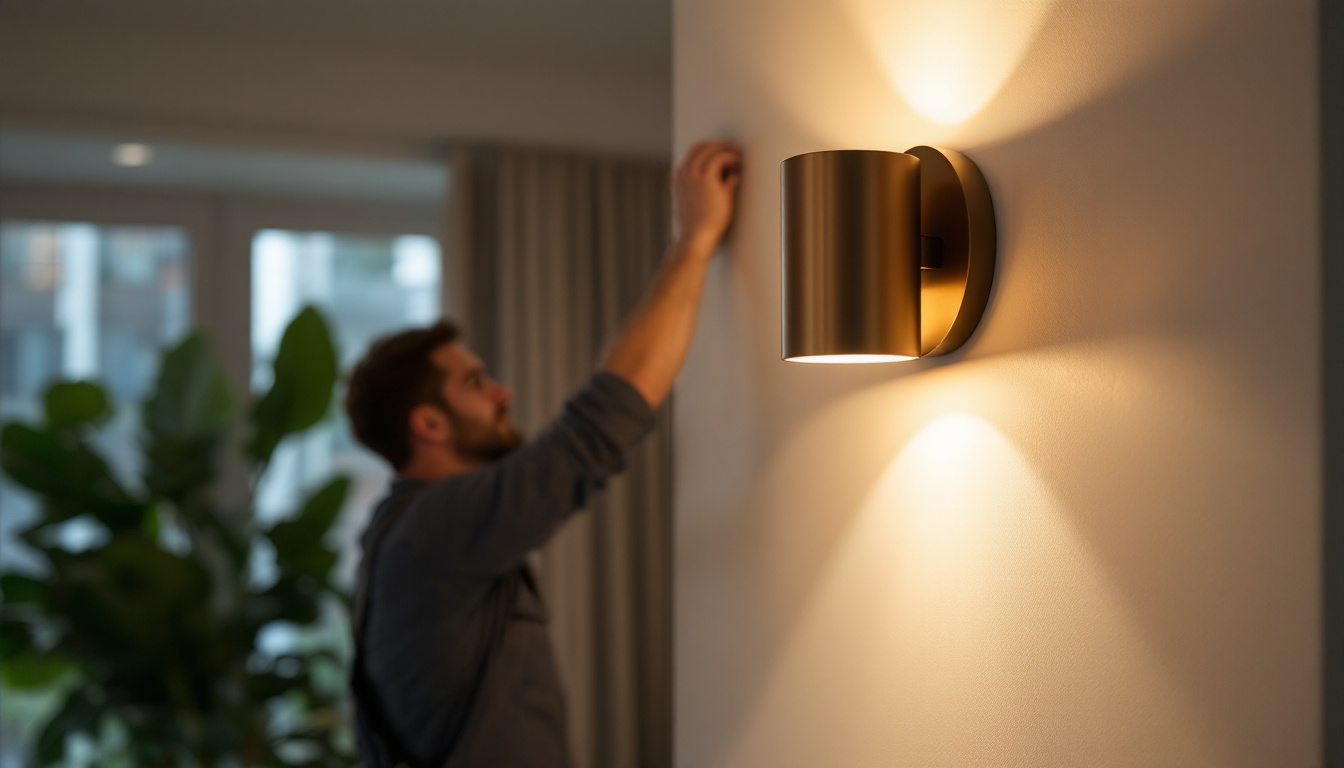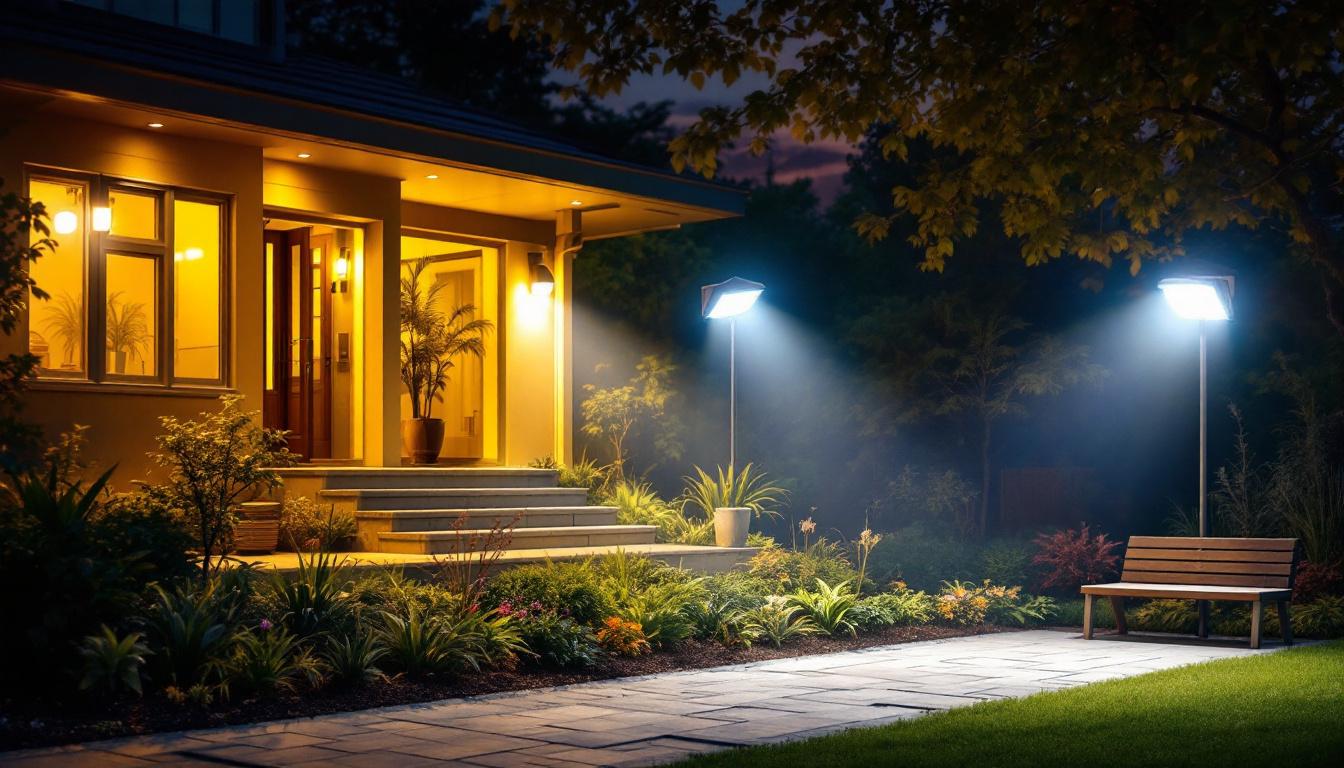
As the world shifts towards sustainable energy solutions, solar-powered shop lights are emerging as a popular choice for lighting contractors. These innovative lighting systems not only reduce electricity costs but also contribute to environmental conservation. Understanding the science behind solar-powered lighting can empower contractors to make informed decisions for their projects.
Solar power harnesses energy from the sun through photovoltaic cells, which convert sunlight into electricity. This process is fundamental to the operation of solar-powered shop lights. The efficiency of these systems relies on several key components, including solar panels, batteries, and LED fixtures. As the demand for renewable energy sources continues to grow, understanding these components becomes increasingly important for both consumers and professionals in the lighting industry.
Photovoltaic cells are the heart of any solar power system. Made from semiconductor materials, these cells absorb sunlight and generate direct current (DC) electricity. The efficiency of these cells can vary based on factors such as material quality, temperature, and sunlight exposure. For lighting contractors, understanding the types of photovoltaic cells available—such as monocrystalline, polycrystalline, and thin-film—can help in selecting the right solar panels for specific applications. Monocrystalline cells, known for their high efficiency and space-saving design, are often preferred for installations with limited roof space, while polycrystalline cells, which are typically less expensive, can be a cost-effective solution for larger installations. Thin-film cells, although less efficient, offer flexibility and lightweight options that can be advantageous in certain settings.
Once the solar panels generate electricity, it is often stored in batteries for later use. This is crucial for shop lights, as they may need to operate during the night or on cloudy days. Lithium-ion and lead-acid batteries are common options, each with its own advantages and disadvantages. Lithium-ion batteries, for example, offer higher energy density and longer life cycles, making them a preferred choice for many modern solar lighting systems. Additionally, advancements in battery technology are leading to the development of newer options, such as flow batteries and solid-state batteries, which promise even greater efficiency and longevity. Understanding the energy needs of the lighting system and the expected usage patterns can help in selecting the most suitable battery type, ensuring reliable performance throughout the year.
LED (Light Emitting Diode) technology has revolutionized the lighting industry, providing energy-efficient and long-lasting solutions. When combined with solar power, LED fixtures can operate for extended periods while consuming minimal energy. The low heat output of LEDs also contributes to the overall efficiency of solar-powered shop lights, as less energy is wasted as heat. Moreover, the versatility of LED technology allows for a wide range of designs and color temperatures, enabling lighting contractors to create tailored solutions that meet the aesthetic and functional needs of various environments. Innovations such as smart LED systems, which can be controlled remotely or programmed for different lighting scenarios, further enhance the appeal of solar-powered lighting solutions, making them not only practical but also adaptable to the evolving demands of modern spaces.
For lighting contractors, the advantages of solar-powered shop lights extend beyond just energy savings. These systems offer a range of benefits that can enhance project appeal and functionality.
One of the most compelling reasons to consider solar-powered shop lights is the potential for significant cost savings. By utilizing solar energy, contractors can reduce or even eliminate electricity bills associated with traditional lighting systems. Additionally, the installation of solar lights often requires less infrastructure, leading to lower installation costs. Over time, these savings can accumulate, allowing businesses to reinvest in other areas or expand their operations. Moreover, many solar lighting solutions come with long-lasting LED technology, which further reduces maintenance costs and the need for frequent bulb replacements.
Solar-powered lighting solutions contribute to a reduction in carbon emissions, making them an environmentally friendly choice. By opting for solar energy, contractors can help clients achieve sustainability goals and promote a greener image. This aspect is particularly appealing to businesses looking to enhance their corporate social responsibility (CSR) initiatives. Furthermore, the use of solar lights can also lead to improved biodiversity in the surrounding area, as they do not contribute to light pollution, allowing nocturnal wildlife to thrive. This ecological consideration can be a significant selling point for projects located in sensitive environments.
Solar-powered shop lights can be installed in various locations, including remote areas where traditional electrical infrastructure may be lacking. This versatility allows contractors to expand their service offerings and cater to a broader range of clients. Furthermore, solar lights can be easily relocated, providing flexibility for changing needs. They are particularly beneficial for outdoor events, construction sites, and temporary installations, where mobility and ease of setup are crucial. The ability to harness solar energy also means that these lights can be deployed in areas prone to power outages, ensuring consistent illumination regardless of external circumstances.
In addition to their cost and environmental benefits, solar-powered shop lights significantly enhance safety and security in various settings. Well-lit areas deter criminal activities and provide a safer environment for employees and customers alike. Solar lights can be equipped with motion sensors, which not only conserve energy but also add an extra layer of security by illuminating dark areas when movement is detected. This feature is particularly advantageous for businesses that operate during nighttime hours or in locations with limited visibility, as it helps to create a sense of safety and comfort for all users.
While the benefits of solar-powered shop lights are significant, several factors must be considered during installation to ensure optimal performance.
A thorough site assessment is crucial before installing solar lights. Factors such as shading, orientation, and available sunlight must be evaluated to determine the best locations for solar panels. Lighting contractors should also consider the specific lighting needs of the shop, including brightness levels and coverage areas.
Proper system sizing is essential for ensuring that solar-powered shop lights meet the desired performance standards. This involves calculating the total wattage required for the lighting fixtures and determining the appropriate size of the solar panels and batteries. Oversizing or undersizing components can lead to inefficiencies and inadequate lighting.
Although solar-powered shop lights generally require less maintenance than traditional systems, periodic checks are still necessary to ensure optimal performance. Contractors should educate clients on the importance of keeping solar panels clean and free from debris, as dirt and dust can significantly reduce energy absorption.
The solar lighting industry is constantly evolving, with new technologies and trends emerging to enhance performance and usability. Staying informed about these developments can provide lighting contractors with a competitive edge.
As smart technology becomes more prevalent, the integration of smart features into solar-powered shop lights is on the rise. This includes motion sensors, remote controls, and connectivity to smart home systems. Such advancements allow for greater control over lighting conditions and energy consumption, making solar lights even more efficient and user-friendly.
Ongoing research in battery technology aims to improve energy storage capabilities, leading to longer-lasting and more efficient solar lighting systems. Innovations in solid-state batteries and other advanced technologies may soon provide lighting contractors with options that offer greater performance and reliability.
As solar lighting solutions become more mainstream, manufacturers are focusing on design aesthetics to appeal to a broader audience. Sleeker, more modern designs are emerging, allowing solar-powered shop lights to blend seamlessly with various architectural styles while still providing functional lighting.
Examining real-world applications of solar-powered shop lights can provide valuable insights for lighting contractors. These case studies highlight successful implementations and the benefits realized by businesses and organizations.
A local retail store opted for solar-powered shop lights to enhance its outdoor display area. By strategically placing solar lights along pathways and around product displays, the store was able to create an inviting atmosphere while reducing energy costs. The store owner reported a significant increase in foot traffic during evening hours, attributing this success to the improved lighting.
In an industrial setting, a manufacturing facility installed solar-powered shop lights in its loading dock area. The facility faced challenges with traditional lighting systems, including high electricity costs and frequent maintenance. By switching to solar lights, the facility not only reduced its energy expenses but also improved safety during nighttime operations. Workers reported better visibility, leading to fewer accidents and increased productivity.
A community center implemented solar-powered shop lights in its outdoor recreational areas. The project aimed to enhance safety and accessibility for evening events. The installation of solar lights not only provided adequate illumination but also fostered a sense of community pride. Residents appreciated the environmentally friendly approach and the center became a hub for evening activities.
Solar-powered shop lights represent a significant advancement in sustainable lighting solutions. For lighting contractors, understanding the science behind these systems is essential for making informed decisions that benefit both clients and the environment. With numerous advantages, including cost savings, versatility, and reduced environmental impact, solar-powered lighting is poised to play a vital role in the future of the industry.
By staying abreast of technological advancements and best practices, contractors can position themselves as leaders in the solar lighting market. As the demand for sustainable solutions continues to grow, embracing solar-powered shop lights will not only enhance project offerings but also contribute to a brighter, more sustainable future.
Ready to lead the charge in sustainable lighting solutions? At LumenWholesale, we provide lighting contractors with the highest quality solar-powered shop lights and spec-grade lighting products at unbeatable wholesale prices. Say goodbye to local distributor markups and hello to superior lighting products that meet the highest industry standards. With our commitment to reliability and performance, you can confidently fulfill your project needs while enjoying the benefits of bulk buying with free shipping. Elevate your lighting game and give your clients the best value by choosing Wholesale Lighting at the Best Value with LumenWholesale. Your brighter, more sustainable future starts here.

Discover the impact of Lumens Wall Sconces on modern lighting design and why they are essential for contractors.

Discover how an inverter for lights can save lighting contractors up to 30% on time and costs.

Discover the essentials of 4 ft LED shop lights in just 5 minutes.

Discover the ultimate guide to top-rated flood lights that give lighting contractors a competitive edge.